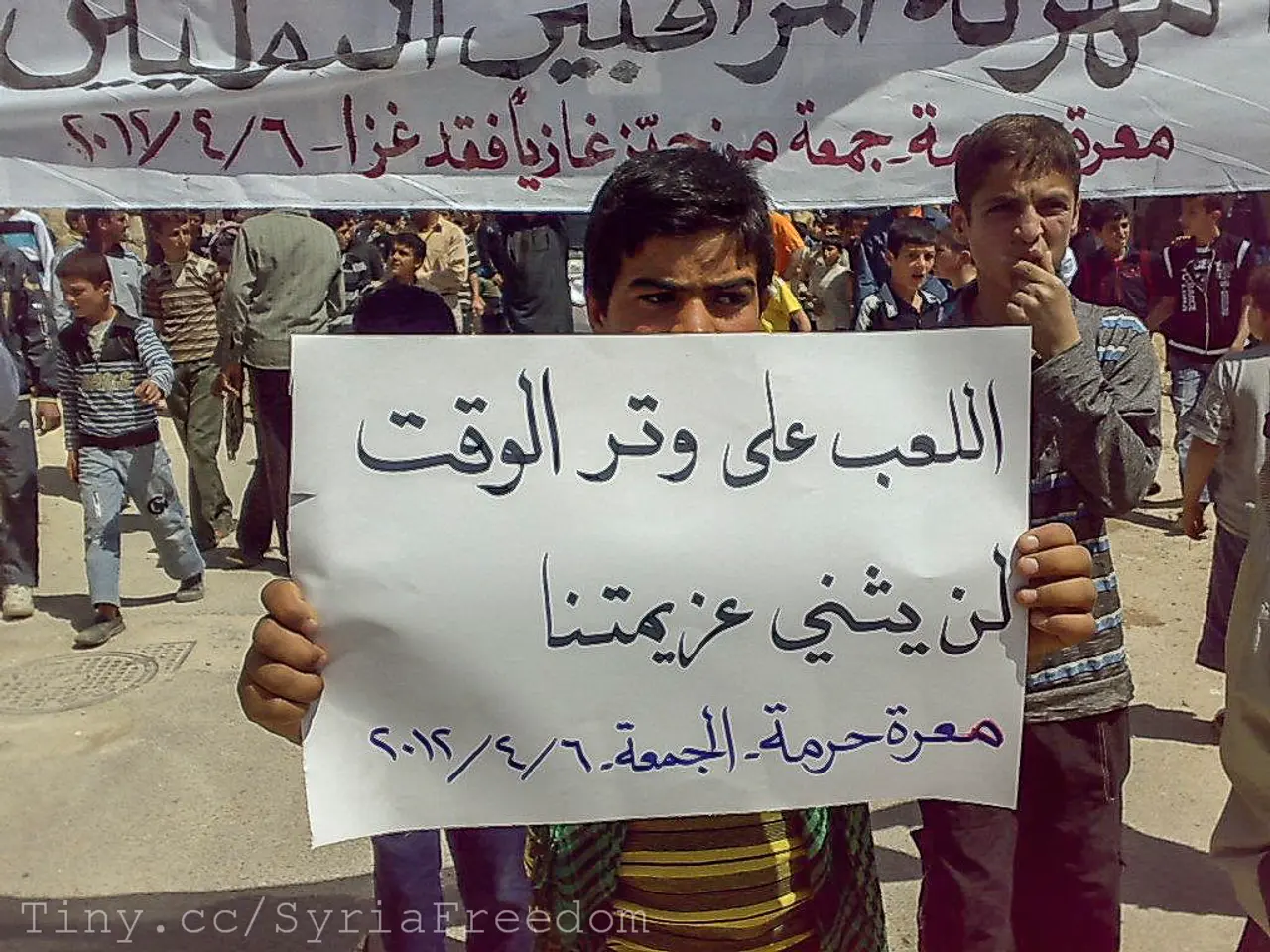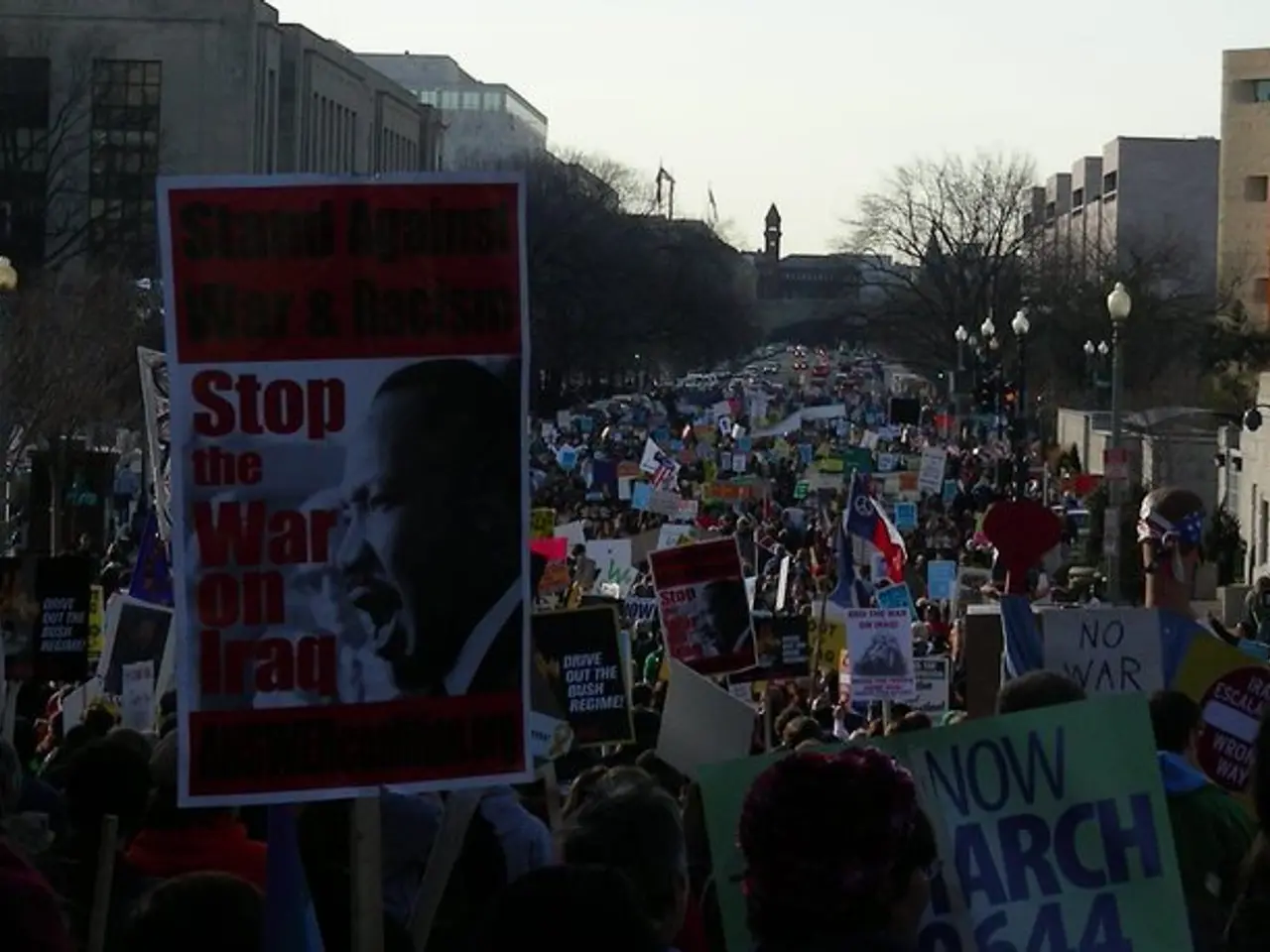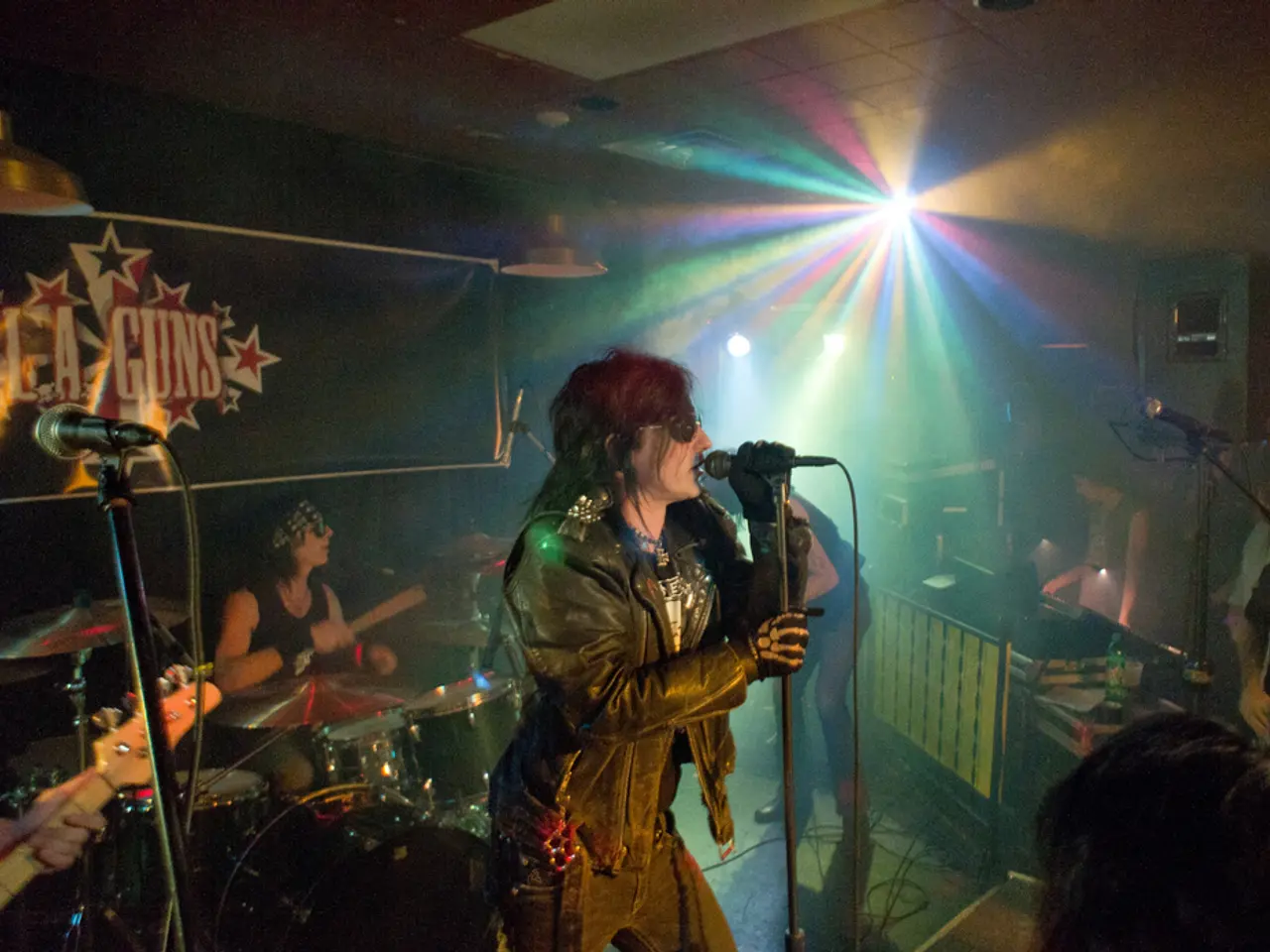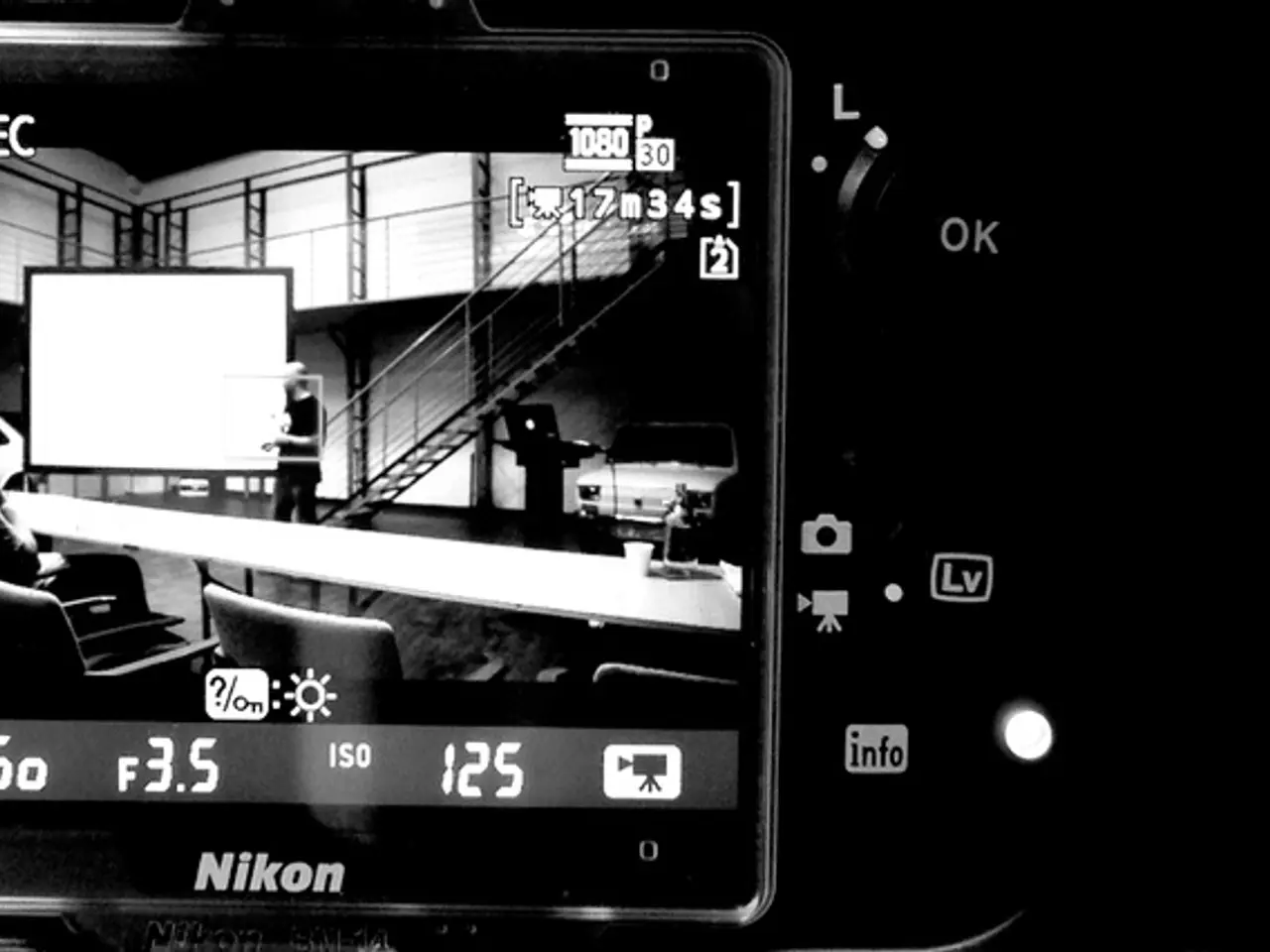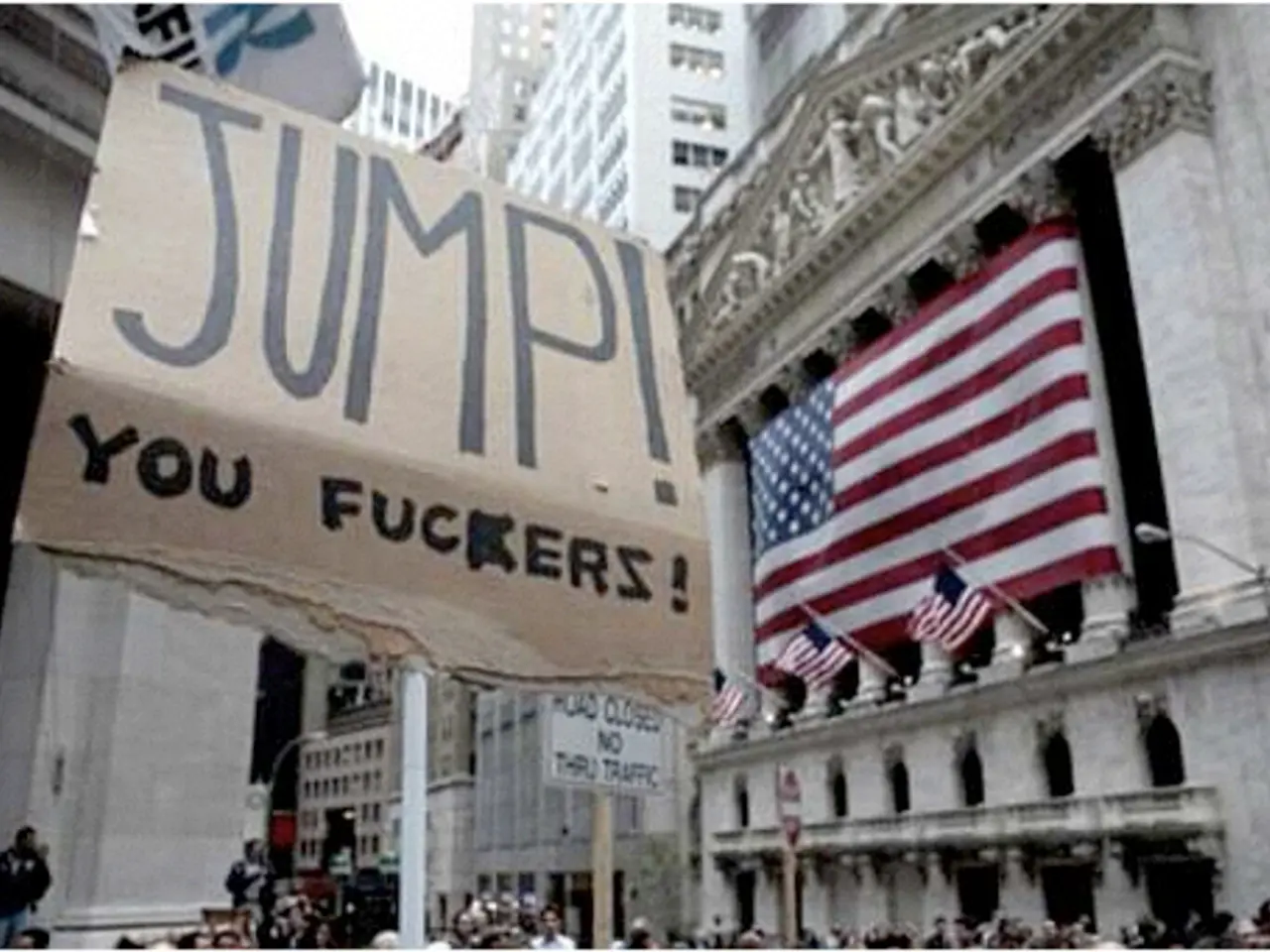Distant shots capturing the sea of attendees as they parade through the streets of Berlin during the annual Pride demonstration.
In the heart of Berlin, the city of progress and inclusivity, a troubling trend has been on the rise - anti-queer crimes. Despite Germany's progressive legal frameworks and advances in LGBTQ+ rights, the queer community has been facing an escalation in violence and hate crimes.
On a sunny Saturday in the city, over 80 floats and more than 100 groups participated in a march to Berlin's Brandenburg Gate, marking the Berlin Pride event. Amidst this show of solidarity, the absence of the rainbow flag at the Bundestag was a stark reminder of the challenges the community continues to face.
Vice President of the Bundestag, Josephine Ortleb, spoke at the opening of the event, emphasizing the values of solidarity, acceptance, and human rights that the German Bundestag and the rainbow flag both represent. However, a 400-square-metre flag was unfurled on the lawn in front of the Bundestag to protest against Bundestag President Julia Klöckner's decision not to raise the rainbow flag.
A 2024 report from the Criminal Police Office and the Ministry of the Interior showed that the number of crimes in the area of "sexual orientation" and "gender diversity" had increased almost tenfold since 2010. In 2023 alone, around 1,785 hate crimes and 288 violent attacks were recorded, a nearly 30-fold increase since 2013.
The causes of this rise include increased visibility of the queer community alongside growing aggression from right-wing extremist groups. The far-right political party Alternative for Germany (AfD) has also made electoral gains, which activists link to the surge in anti-LGBTQ+ hate crimes. Attacks target safe spaces like Berlin’s Das Hoven café, which faced 45 investigations for incidents ranging from verbal abuse to physical assaults and vandalism, including swastika graffiti.
Thomas Hoffmann, a member of the board of the CSD Berlin association, emphasized the importance of taking to the streets again with vigor to set an example for freedom, tolerance, and equality. He noted that for the first time in the history of queer rights, they are not fighting for new rights, but to defend existing rights.
Unfortunately, the peaceful demonstration was marred by incidents. A right-wing extremist counter-demonstration took place, with around two dozen people participating. The protest was broken up by police after officers were attacked and anti-Semitic slogans were shouted.
In a separate demonstration, thousands gathered for a queer pro-Palestinian event in Berlin-Kreuzberg. Despite the peaceful nature of the event, 17 police officers were injured, and 57 were arrested during the demonstration.
The impact on the queer community is profound: heightened fear and trauma from violence and harassment, undermining the sense of safety in public and social spaces meant to be inclusive. Nevertheless, events like Berlin Pride still attract hundreds of thousands, demonstrating resilience and community solidarity despite the risks.
As we move forward, it is crucial to address the root causes of these hate crimes and work towards creating a society where everyone can live freely, without fear of violence or discrimination.
- Social-media platforms have become a additional avenue for spread of hate speech and discrimination against the LGBTQ+ community in Germany, contributing to the escalating trend of anti-queer crimes.
- The increasing visibility of the entertainment industry promoting diverse representation, including gay and transgender characters, has led to a rise in backlash from conservative groups, fueling the number of hate crimes against the queer community.
- The General News coverage on the rise in anti-LGBTQ+ hate crimes, including violent attacks, has sparked debate about the role of Crime-and-Justice policies in addressing these issues and ensuring equal rights and protection for all members of society.
